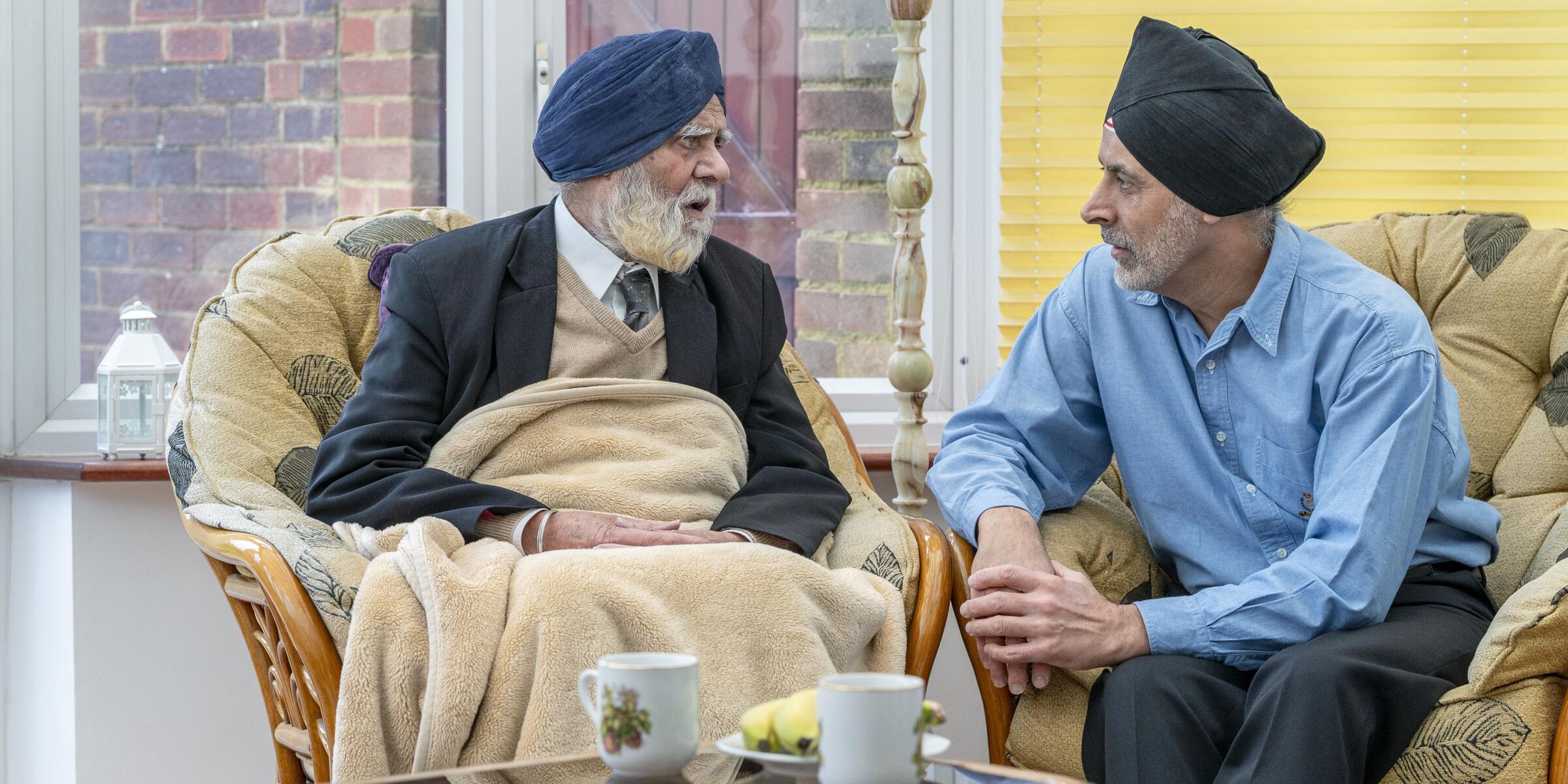
Information
How can someone with dementia plan for their future?
Tips for having a conversation with someone who has dementia as they begin to think about support they might need later in their life.
Someone with dementia is likely to need support as their symptoms progress. This could be someone helping them to manage their finances, arranging care or making medical decisions on their behalf. But they can still have a say about what happens.
There are legal things that can be done to plan through to the end of the person’s life. The person with dementia might also want to make a will and plan their funeral. Read more about living with dementia and planning ahead.
Or it may be helpful just to have a conversation.
Talking about the person’s wishes through to the end of their life can help others understand and respect those wishes.
No-one has to do any planning ahead, but it can make some things easier and can give the person more control. Some of the legal steps require the person to have the ability, known as mental capacity, to do them, so doing them early after diagnosis is a good idea. Learn more about dementia and the Mental Capacity Act 2005.
It can be difficult to think and talk about these things. Some people find it reassuring, while others would rather not think about it. Everyone is different.
10 tips for having a conversation with someone who has dementia about their future
Conversations about the future, especially about the end of a person’s life, can be very difficult, both for the person with dementia as well as others in the conversation. Here are some tips on how to have these conversations:
- Consider the environment. Make sure you’re somewhere quiet, calm and private. Busy environments and distractions can make communication difficult, and the person is unlikely to want to discuss these subjects in a very public place. For more information about practical considerations, read our information on communicating.
- Be led by the person with dementia. Thinking about the person and what you know about them can help you approach these subjects. Some people may be keen to discuss and sort things out as soon as possible, whereas others may find it very distressing to even think about. Try to tailor your approach to them.
- Have the conversation early. Speaking to the person before their condition progresses is usually a good idea. If decisions need to be made, they will need to have the mental capacity required to make them. As their dementia progresses, this will become more difficult.
- Plan ahead. Try to find out about the different options available for the person with dementia and consider what might be best for them.
- Consider the person’s cultural and religious beliefs. Their beliefs may influence the type of care they would like or want to accept in the future. Being mindful of this can be helpful for these conversations.
- Have an open conversation. There may be things that the person with dementia doesn’t want, even though you may feel they are best for them. Try to have a sincere and honest discussion.
- Give them lots of time. Many people with dementia will need more time during conversations to process what has been said and reply. With conversations about sensitive topics, it’s likely they’ll need even more time. They may also find it useful to think about things later and speak again at another time. Remember that there’s no rush to talk about everything in one conversation.
- Focus on the benefits of planning ahead. Make sure the person with dementia knows that they can make decisions now about what they do or don’t want to happen in the future. They can also explain their wishes so that those can be taken into account later on. Planning ahead can also help remove pressure from family members as they’ll know what the person wants in advance.
- Consider involving a health or social care professional. If the person with dementia doesn’t feel comfortable talking about this subject with family or friends, consider whether it would be best for them to speak with a health or social care professional, such as their GP or social worker instead.
- Remember it is always the person with dementia’s choice. If they don’t want to discuss these subjects or plan ahead, it’s important their wishes are respected. This can be difficult for family members and friends to accept, but it’s important to respect the person’s decision.
Living with dementia and planning ahead
Making plans for the future can be helpful for people with dementia and their carers.

